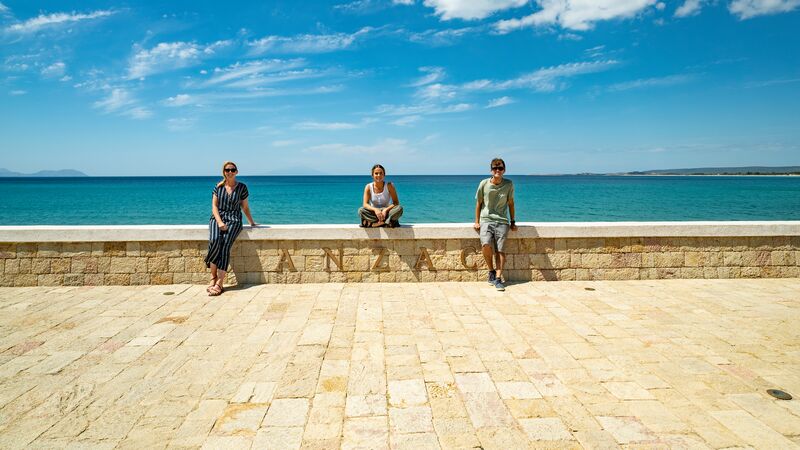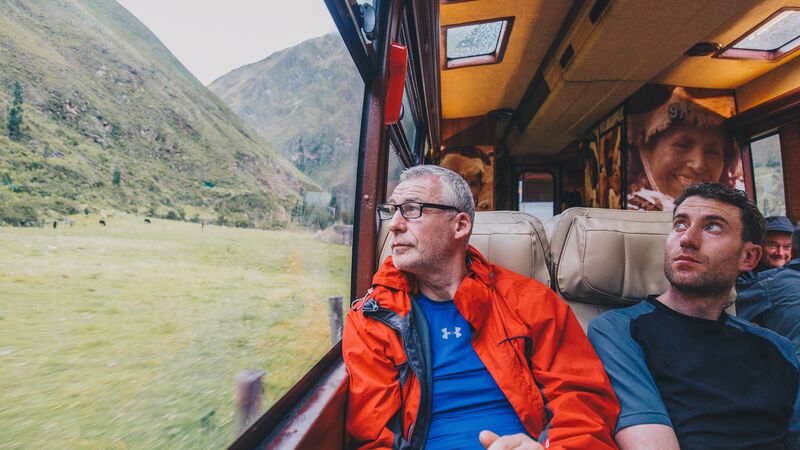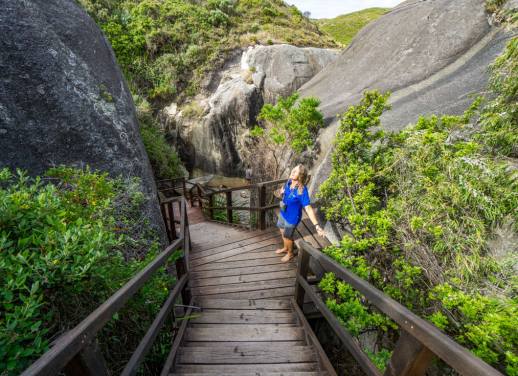Airport layovers and heavy luggage might not seem like a recipe for mental health, but there’s a surprising amount of science that says travel is actually good for your brain. And not just in a broadening-the-mind, heal-the-world sort of way. We’re talking hard-hitting, peer-reviewed neuropsychological benefits. What holidays are all about.
In fact, the science starts before you even check-in. A 2010 US study found that simply booking a holiday can massively boost your overall happiness. Our brains can apprehend the future pay-off. All that anticipation of beaches and daiquiris and spontaneous adventures with exotic-yet-approachable strangers – we can’t help getting excited. The same study said you should wallow in anticipation to increase this effect: watch re-runs of The Motorcycle Diaries, read books about your destination, set screensavers to stun. Delayed gratification might be the definition of maturity, but it’s also the definition of happy.
Here are five other reasons travel is good for your mental health:
1. Travel relieves stress

Photo by Pat O’Neill.
Not shocking really. This is what 90 per cent of cruise brochures are about: couples positively oozing into deckchairs and watching their stress evaporate like mist. But the relationship between travel and stress is a bit more complicated than you might think. Just getting on a plane isn’t enough. Although some studies show significant stress drops after two or three days abroad, others indicate that travel (if not properly managed) can cause all kinds of new stress. And that makes sense: you’re in a new place with strangers, you don’t know where anything is, and there’s a nagging social pressure to start Finding Yourself as quickly as possible. The trick seems to be identifying your stressors and managing them accordingly. If you hate trip planning, go through a travel agent; if you’re freaked out by impenetrable Japanese train stations, try a small group tour with a local leader.
RELIEVE SOME STRESS ON A SMALL GROUP ADVENTURE IN EGYPT – EXPLORE OUR RANGE OF TOURS HERE
2. Travel makes you more creative

Photo by Damien Raggatt.
Professor Adam Galinsky from Colombia Business School has written a lot about the link between travel and creativity. After all, it worked for Hemingway and Mark Twain, right? “Foreign experiences increase both cognitive flexibility and depth… of thought, the ability to make deep connections between disparate forms,” Galinsky says. But he also notes that simply travelling isn’t enough. You have to engage with your destination, rather than watch it objectively. “The key, critical process is multicultural engagement, immersion and adaptation,” he says. “Someone who lives abroad and doesn’t engage with the local culture will likely get less of a creative boost.” How does this all work? Well without getting too technical, creativity is linked to neuroplasticity (how the brain adapts and re-wires itself). Change and fresh stimuli (like what you experience overseas) triggers this effect, sparking synapses and awakening new areas in your brain. Other studies seem to back up Galinsky’s ideas.
SPARK YOUR SYNAPSES IN KENYA! CHECK OUT OUR SMALL GROUP ADVENTURES HERE
3. Travel lowers the risk of depression

Photo by Flying the Nest.
While red-eye business travel (if taken to extremes) can actually cause depression, travel itself has been shown to be an effective tool against mood disorders. A study from the Marshfield Clinic in Wisconsin surveyed thousands of American women in the late 1990s: they found that women who travelled at least twice a year were less likely to suffer from depression and chronic stress. In the new age of mindfulness, psychologists are starting to probe this effect. Travel has been shown to improve your mood, increase life satisfaction, and boost overall happiness. How long these benefits last is less clear; most researchers seem to agree there’s a definite short-term happiness spike, but this tends to diminish over time. Kind of like your tan. The obvious solution being: book another holiday.
GET HAPPY IN TURKEY ON ONE OF THESE SMALL GROUP ADVENTURES
4. Travel increases empathy

Photo by Ben McNamara.
This is something travel companies have been saying for years (in fact we’ve said it ourselves): travel fights prejudice, undermines bigotry, challenges your unconscious bias. But it’s nice to see market research backing it up. According to a 2018 travel survey, 76 per cent of participants believe that travelling gives them “a more positive view on people from the countries they have visited, other cultures in general and on differences and diversity.” The funny thing is, you can’t teach empathy (it’s been proved), but you can facilitate it. And travel is an excellent facilitator. It practically forces you to stop and re-evaluate. Galinsky has looked at this effect too: “The act of perspective-taking is a critical ingredient in compassion and empathy,” he explained to Quartz in 2016. “Engaging with another culture helps kids recognise that their own egocentric way of looking at the world is not the only way of being in the world.”
FOOD IS ANOTHER CRITICAL INGREDIENT FOR A GOOD ADVENTURE – DIG IN TO OUR RANGE OF FOOD TOURS HERE
5. Travel makes you less ego-centric

Photo by Ryan Bolton.
SUBSCRIBE TO INTREPID’S NEWSLETTER FOR TRAVEL STORIES, COMPETITIONS & MORE
This one’s a bit grim, but bear with me. In his 2005 essay Consider The Lobster, author David Foster Wallace wrote a description of travel that you won’t find on many brochures: “As I see it, it probably really is good for the soul to be a tourist, even if it’s only once in a while. Not good for the soul in a refreshing or enlivening way, though, but rather in a grim, steely-eyed, let’s-look-honestly-at-the-facts-and-find-some-way-to-deal-with-them way.” Wallace’s argument was that being a tourist is humbling and hostile to your fantasy of being the centre of the universe: you’re visiting places that (sometimes) might not want you there. You’re spoiling “by sheer ontology, the very unspoiledness you are there to experience.” It’s a good reminder that travel by itself isn’t virtuous: it’s the way you travel that matters. You need to give as well as take. Recognise that you’re a visitor in someone else’s life. Be curious. Engage. That’s what sustainable travel is all about.
Ready to start planning your next holiday? Explore our range of small group adventures now.
Feature photo by Ryan Bolton.




